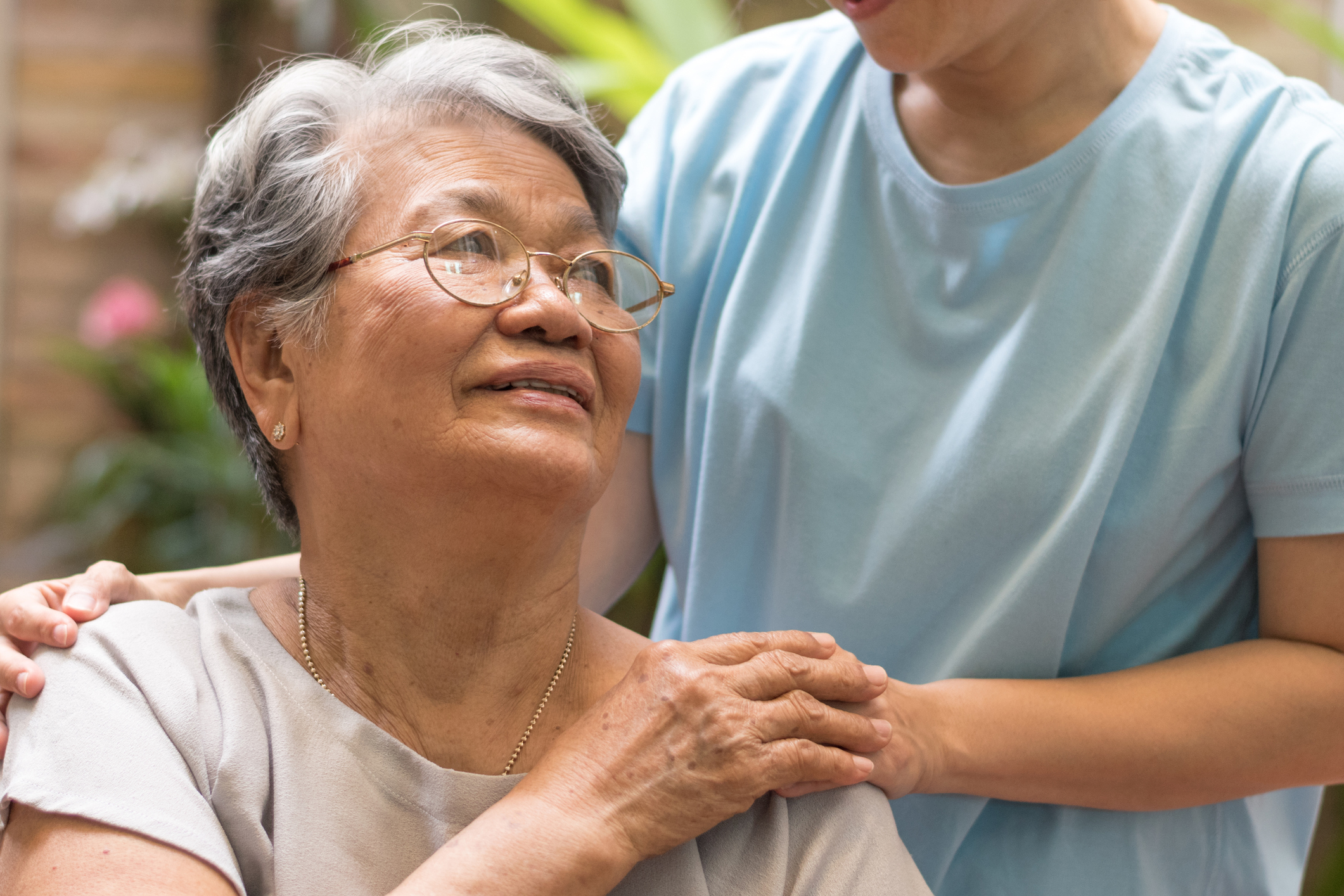
INFORMATION FOR CARERS
The events that lead up to a hospital admission for a flare-up can cause feelings of anxiety, stress and helplessness in carers and/or family members. Learn more about some of the ways you can support your loved one during a hospital admission below.
Preparing to go to hospital
Presenting to hospital for a flare-up can often be a rushed and stressful experience. You can assist with packing a bag. Ensure valuables are left home where possible and consider taking the following items that would help your loved one to:
- Complete daily tasks: visual, hearing and mobility aids.
- Feel more comfortable: Bedroom shoes, a dressing gown, a photograph of loved ones or pets.
- Stay mentally active: A current book being read, personal electronic devices with charging cords.

During hospitalisation

- A prepared list of current medications and personal and next of kin contact details can be helpful. It is common that many questions for your loved one will be repeated throughout their stay, even if they have been admitted to that hospital before. This is to ensure that hospital staff have the most accurate information, and are acting for the correct patient.
- Familiarise with healthcare roles that are involved in your loved one’s treatment. It is normal to encounter many caring staff over the course of an admission as staff commonly work in teams and rostered shifts. Though you might not recall every staff’s name, it is helpful to know how they contribute to your loved one’s health care. The type and number of healthcare professions involved in your loved one’s care depends on their needs.
- Be flexible and patient with altered communication. Being unwell in an unfamiliar environment can cause your loved one to feel less receptive to receiving information, less efficient at processing information, and/or find it harder to express themselves or retain information. See Communication for strategies to assist information exchange.
- You have a right to advocate for your loved one. This could range from raising a query about a symptom or treatment they are having, to requests that would make your loved one’s stay more comfortable.
Feeling overwhelmed with information during hospitalisations? Keep a list of questions by the patient’s bedside and/or request a phone call update if healthcare professionals attend when you are absent.
Preparing to leave hospital
- When hospital discharge is ‘in sight’, have a discussion with your loved one to identify additional support required to meet their physical, emotional and mental needs. Consider if yours or other’s commitments need to be temporarily changed to provide this support, and raise any concerns with the healthcare team.
- Be aware of the plan to support continued recovery following hospital discharge by working through the ‘Prior to leaving hospital’ checklist with your loved one and the healthcare team.
- Prior to the intended day of discharge, familiarise with arrangements initiated in hospital such as equipment hired to support recovery at home. Seemingly small matters like these can accumulate and overload the day of discharge. Find out more about preparing for discharge.

Following hospital discharge
Returning from hospital can be filled with a mixture of emotions for the individual with COPD and yourself. Ranging from feeling relieved or overwhelmed, or perhaps extremely motivated to restore previous level of function.

- Reassurance and gentle encouragement are helpful. Revisit the plan for recovery made with the healthcare team, and remind the individual of management strategies if symptoms begin to escalate.
- Activity pacing, energy conservation strategies and early physical rehabilitation are effective in promoting the best possible recovery and reducing the risk of another flare-up and hospitalisation. Rather than taking tasks off them completely, encourage them to complete a part of it, or break the task up over the day to accommodate for increased symptoms e.g. preparing ingredients earlier in the day and cooking later but having assistance for washing up.
- Ensure follow through of medical and rehabilitation appointments planned.